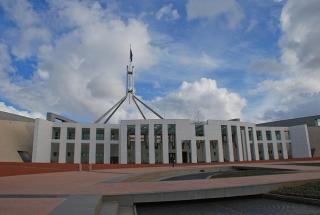What is tax reform for and what can it do?

What is the purpose of tax reform? And what, realistically, can tax reform achieve? This paper considers the contemporary tax reform debate from a democratic, economic and social perspective. Professor Stewart takes a long term view of today’s tax reform proposals, and discusses the policy goals of sustainable revenues, economic prosperity, fairness and resilience in Australia’s tax system at federal and state level.
An era of reform?
In the last few weeks, I have spoken to a range of audiences about tax reform. They included Queensland and Victorian tax specialists; State Departments of Treasury and Finance; students of Global Finance; and the Prosper Society, formerly known as the Henry George Society, who in the 19th century were known as the ‘single taxers’—land tax being the single tax. Admittedly, most audiences have been tax specialists—or tax enthusiasts—of one form or another.
I am not the only one speaking about tax reform. Sometimes it seems that we talk of nothing else. The questions are, ‘what are we seeking to achieve?’ and ‘what can we achieve?’ under this label of ‘reform’.
I should say just a little bit about where I have come from. I’ve been an academic for many years. I have previously worked in private practice advising large corporations including mining companies and also in the Australian Government working on business tax policy and legislation. At the moment I am the Director of a fairly new research policy institute at the Crawford School at ANU called The Tax & Transfer Policy Institute.
In this role, I’ve been thinking quite a lot about the system as a whole; if you like, trying to think systemically.
I was invited, and very honoured to be so, to the National Reform Summit that was held recently. Reform is like sport. I love sport but I hate sports interviews, and I recall a cartoon whose author escapes me, of a sports interview. The team captain says, ‘Well, we sportsed very well out there that time, but unfortunately we didn’t sports well enough. The other team sportsed better. So we’re going to go away and do some training and we’ll be back to sports better next week’. We’ve been reforming very hard. We haven’t reformed hard enough. If we go away and regroup we might reform better next week.
There is a big challenge for governments to communicate why they want to ‘reform’ and what it is. After the Summit, I listened to 3SER Community Radio in Sydney, which is a young people’s community radio, and they had their morning breakfast show where they talked about ‘What happened yesterday?’ Well, it was the National Reform Summit, and they said, ‘Yeah, so a whole lot of important people got together to talk about reform. They thought there were a lot of things that needed reforming’—but they did not understand what, why, or where the costs and benefits might arise.
One of the reasons the National Reform Summit was held, was because there was a sense among a range of groups that government itself was not pursuing reform. That may still be the case, although there is now a little more momentum, I suggest, at the political level including state and federal governments together, for some kind of a tax ‘reform’.
Parliamentary Library Lecture - 21 October 2015, by Miranda Stewart.
Download the audio, video or paper here.
Updated: 16 July 2024/Responsible Officer: Crawford Engagement/Page Contact: CAP Web Team










